In the Kingdom of Happy Healthcare
Once upon a time, in a land far, far away, Eric Henry Roberts V went looking for a wife. Since he was the prince of the entire Kingdom of Happy Healthcare, he knew he would be able to find a wonderful wife. What woman wouldn’t want to marry the handsome prince and share this wonderful kingdom from atop EHR Mountain within the glorious walls of EHR Castle, the grandest castle in all the land?
EHR Castle had been built by Eric’s great, great grandfather who was known as Pen. He ruled at a time when the land was rife with outlaws and hooligans. At that time, the kingdom was a vast jungle. It was divided into many small lands ruled by warlords and chieftains. None of them spoke in person with the others and they rarely shared. They were the kings of their parts of the jungle and, by a long-held and poorly understood tradition, they all wrote decrees to each other on parchment. Thus, they were known as the “Paper Lions.”
The Paper Lions’ paper decrees had many problems. They were, by tradition, the only way the various tribal leaders spoke with the nearby leaders, discussing treaties and the like, but they were often more trouble than treaty. Their papers were often lost, hard to read, or so poorly written that many a war was started over the years simply due to poor communication.
Pen was one of the Paper Lions, but he developed a bigger vision than his fellow chieftains. He saw the value of working more cooperatively with others outside of his clan. He knew that resources abounded in other areas of the jungle that he could not access. He knew, too, that he held riches within his domain that others would want. He was the first to step away from the Paper Lions and develop a new way of connecting with his fellow warlords. He developed “The Talk.”
Pen figured out a clever way to make messages between tribes more reliable. He strung a network of wires running through the jungle from tribe to tribe. They put their decrees and other inter-tribe messages into little holders and sent them careening through the trees on these long wire pathways. Messages got to where they were intended. Plus, he developed a standard message format that all tribe leaders agreed to use to insure that everyone could read and understand the messages. The fellow chieftains dubbed this system “The Talk.”
The Talk worked. As tribes communicated more effectively, barriers between them fell. They worked together more. They eventually grew together, taming their vast jungle and joining forces under the wise leadership of Pen.
Pen was crowned king of the entire land of Happy Healthcare and adopted the kingly name, Eric Henry Roberts. All the generations since have proudly carried the E.H.R. (version II, II,IV, etc.) moniker.
Now Eric Henry Roberts V needed a wife. The word went out and many a comely woman aspired to his attentions. However, just as he was setting his sights upon the loveliest and gentlest among them, the Kingdom of Happy Healthcare was attacked by neighboring enemies. The attack was fierce and all of Prince Eric’s advisors beseeched him to use his Solomon-esque skills to assuage the enemy. Eric knew what he had to do.
The marauders were from the Land of Efficient Healthcare; they had long argued with their Happy Healthcare neighbors to the north. Eric knew that the ruler of their enemy was a good woman, though she had grown up indoctrinated with family values, values that included a longstanding feud mindset with the Kingdom of Happy Healthcare. No one even remembered what had started the feud, but it has burned ever more hotly through the years as Eric’s predecessors had driven the improvements and camaraderie within their kingdom. Now they had invaded. They were envious of what the E.H.R.s had built.
Eric also knew that the Queen of the Land of Efficient Healthcare had accomplished many of the same feats he and his forebears had; she had banded together disparate tribes within their land and brought peaceful coexistence and prosperity through cooperation and enhanced inter-tribal communication.
He also knew she had an exquisite daughter.
Prince Eric sent a special envoy to Queen Eleanor. The envoy rode non-stop to deliver the message. Eric had used the same message protocol that his great, great grandfather had established years ago with the warlords. His hope was that the message clarity would insure accurate communications between the leaders, just as it had done so many years ago.
This fact was not lost on Queen Eleanor. She understood and she accepted Prince Eric’s proposal; she dispatched her beautiful daughter the very next day.
Queen Eleanor’s daughter arrived in the Kingdom of Happy Healthcare within a fortnight. She dutifully married the handsome Prince Eric the very next day. The warring nations were now joined by royal matrimony and peace was declared.
As the newlyweds retired to the royal bedchambers on their honeymoon night, they noticed that the maidservants had arranged the boudoir with all of the new couple’s personalized accoutrements. One among them stood out to both Eric and his lovely new bride: monogrammed pillow cases with the initials “E.H.R.” on them.
The new bride looked surprised and apologized to her new husband, “My lord, I most humbly beg your forgiveness. My servants have snubbed thee and for that I beg thy mercy.”
Eric was perplexed. “Why sayeth thou so, dear wife?” he asked.
“My ladies in waiting have placed only my pillows upon our bridal bed. They have neglected your royal highness’ seal,” she replied.
Said Eric, “But, dear bride, these are my marks. I fear they have neglected thine.”
Suddenly, as the awareness dawned upon him, Eric realized he knew not the full name of his betrothed. “Beloved,” he asked, “pray, tell me thy fullest name.”
“Why, Eleanor Hermione Rothwell, of course. The same as my mother, and her mother before her, and her mother before her,” she answered. “It is a proud maternal tradition of our land.”
“Aw,” said the goodly prince. “Now ‘tis clear. I see we are both well represented in our chambers as I am Eric Henry Roberts V. The royal ‘E.H.R.’ monograms connect us both.“
Eleanor smiled when Eric then strode toward her with a knowing (and not exactly royal) twinkle in his eye and said, “Let us now connect two lands, two peoples, and two E.H.R.s!”
The moral of the story? When EHRs connect, Happy and Efficient Healthcare finally get it on!
From the trenches…
“To the royal guards of this realm, we are all victims in-waiting.” – Cheshire Cat

Dr. Gregg Alexander, a grunt in the trenches pediatrician at Madison Pediatrics, is Chief Medical Officer for Health Nuts Media, an HIT and marketing consultant, and sits on the board of directors of the Ohio Health Information Partnership (OHIP).

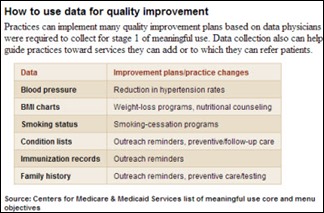
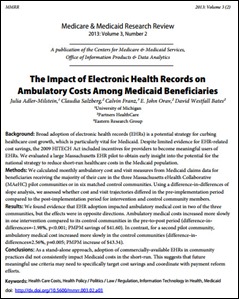


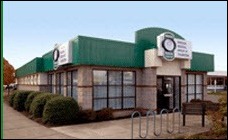




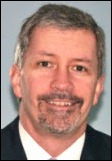
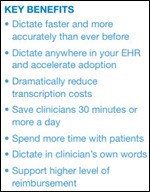

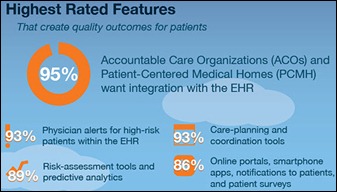


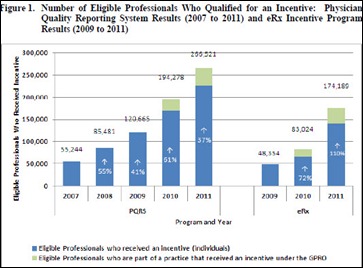





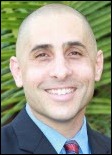

The article about Pediatric Associates in CA has a nugget with a potentially outsized impact: the implication that VFC vaccines…